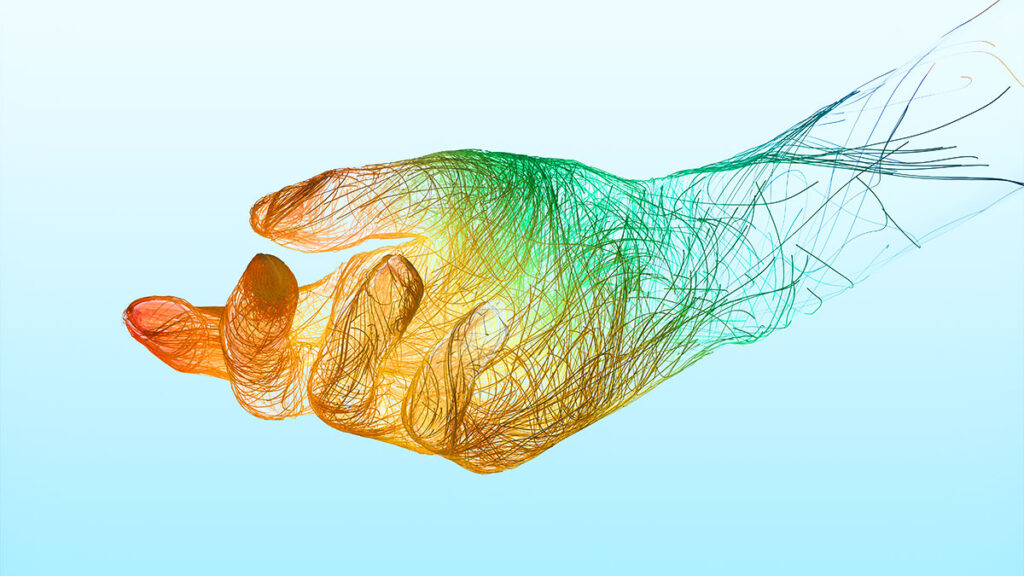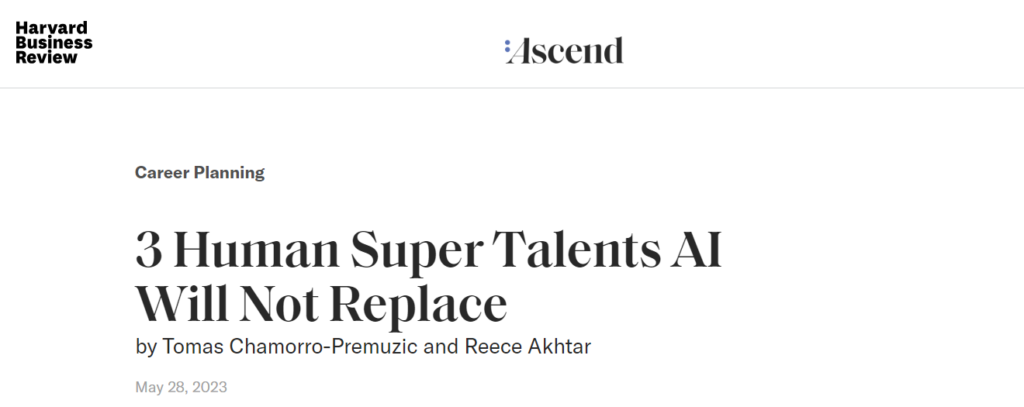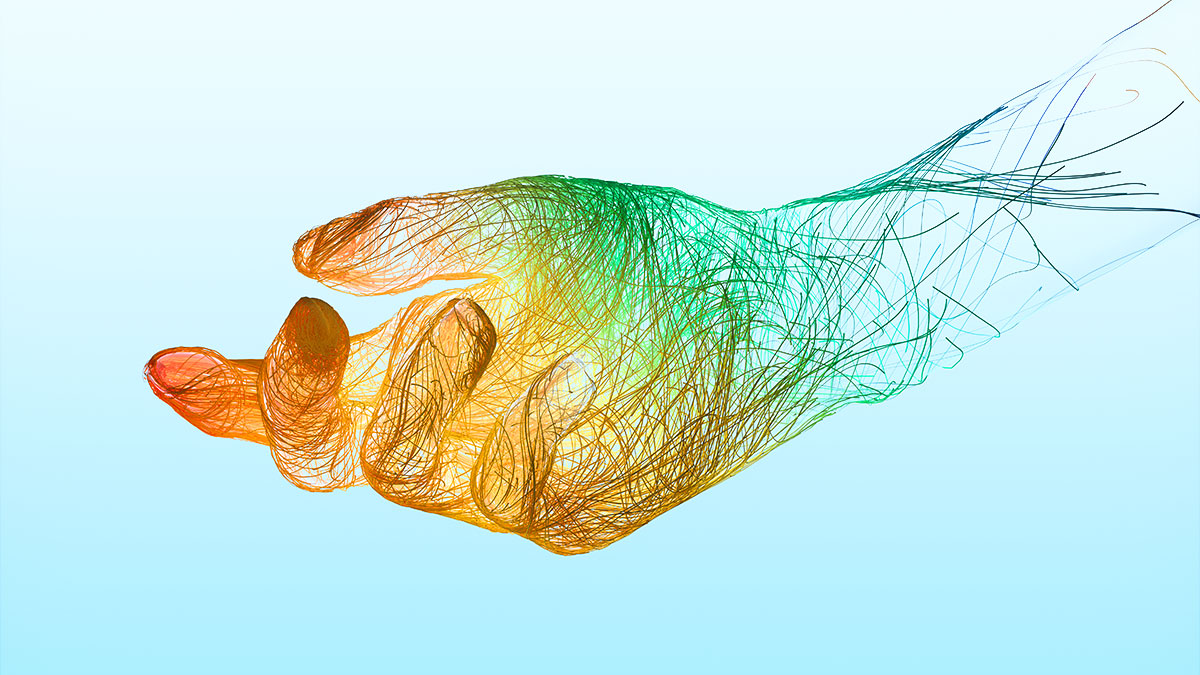the health strategist
institute for
strategic health transformation
& digital health
Joaquim Cardoso MSc.
Chief Research and Strategy Officer (CRSO),
Chief Editor and Senior Advisor
August 31, 2023
What is the message?
While AI tools are transforming various industries, individuals can still secure fulfilling and creative careers by cultivating skills that machines can’t replicate.
The article emphasizes that (1) curiosity, (2) humility, and (3) emotional intelligence are essential traits for success in an AI-driven world.
By leveraging AI as a tool, remaining self-aware, and prioritizing human connections, individuals can navigate the changing job landscape and thrive alongside AI advancements.

One page summary:
The article, published by the Harvard Business Review, discusses how the rise of AI tools will impact job prospects and careers, emphasizing that despite the concerns of job displacement, individuals can still have meaningful and creative careers by cultivating certain skills that machines can’t replicate.
The three skills highlighted in the article are:
- Curiosity: The article encourages readers to embrace AI as a tool rather than a replacement. It suggests that curiosity is a uniquely human trait that AI has yet to mimic successfully.
By leveraging AI to handle mundane tasks, individuals can free up mental energy to focus on creative and strategic thinking. The article recommends exploring AI tools, asking questions, and getting creative with their applications to enhance productivity and performance.
- Humility: AI’s ability to personalize content and ideas according to individual preferences can lead to confirmation bias and overconfidence. The article advocates for practicing humility and expanding self-awareness, which AI cannot achieve.
It advises individuals to deeply understand their own strengths and weaknesses, seek feedback from others, and embrace continuous improvement. This self-awareness can help individuals make better decisions, improve working relationships, and adapt to changing industries.
- Emotional Intelligence: The article underscores the importance of emotional intelligence in an AI-driven world. While AI can mechanize intellectual tasks, the ability to build connections, practice empathy, and communicate effectively remains crucial.
The article suggests focusing on others as much as oneself, understanding teammates’ goals, and learning to manage conflict. In a digital communication era, maintaining empathy and consideration becomes more critical as AI’s detachment from human interactions grows.
The article concludes by emphasizing that AI advancements are inevitable and touch all industries.
The key for individuals is to proactively invest in these skills—curiosity, humility, and emotional intelligence—to stand out in a rapidly evolving job landscape and thrive in the era of AI.
DEEP DIVE

This summary was written based on the article “3 human super talents AI will not replace”, published by Harvard Business Review, written by Tomas Chamorro-Premuzic and Reece Akhtarm on May 28, 2023.
To read the full article, access https://hbr.org/2023/05/3-human-super-talents-ai-will-not-replace
About the Authors
Tomas Chamorro-Premuzic is the Chief Innovation Officer at ManpowerGroup, a professor of business psychology at University College London and at Columbia University, co-founder of deepersignals.com, and an associate at Harvard’s Entrepreneurial Finance Lab. He is the author of Why Do So Many Incompetent Men Become Leaders? (and How to Fix It), upon which his TEDx talk was based. His latest book is I, Human: AI, Automation, and the Quest to Reclaim What Makes Us Unique.
Reece Akhtar, PhD. is CEO and co-founder of Deeper Signals. He is an organizational psychologist, data scientist, and visiting lecturer at NYU.












